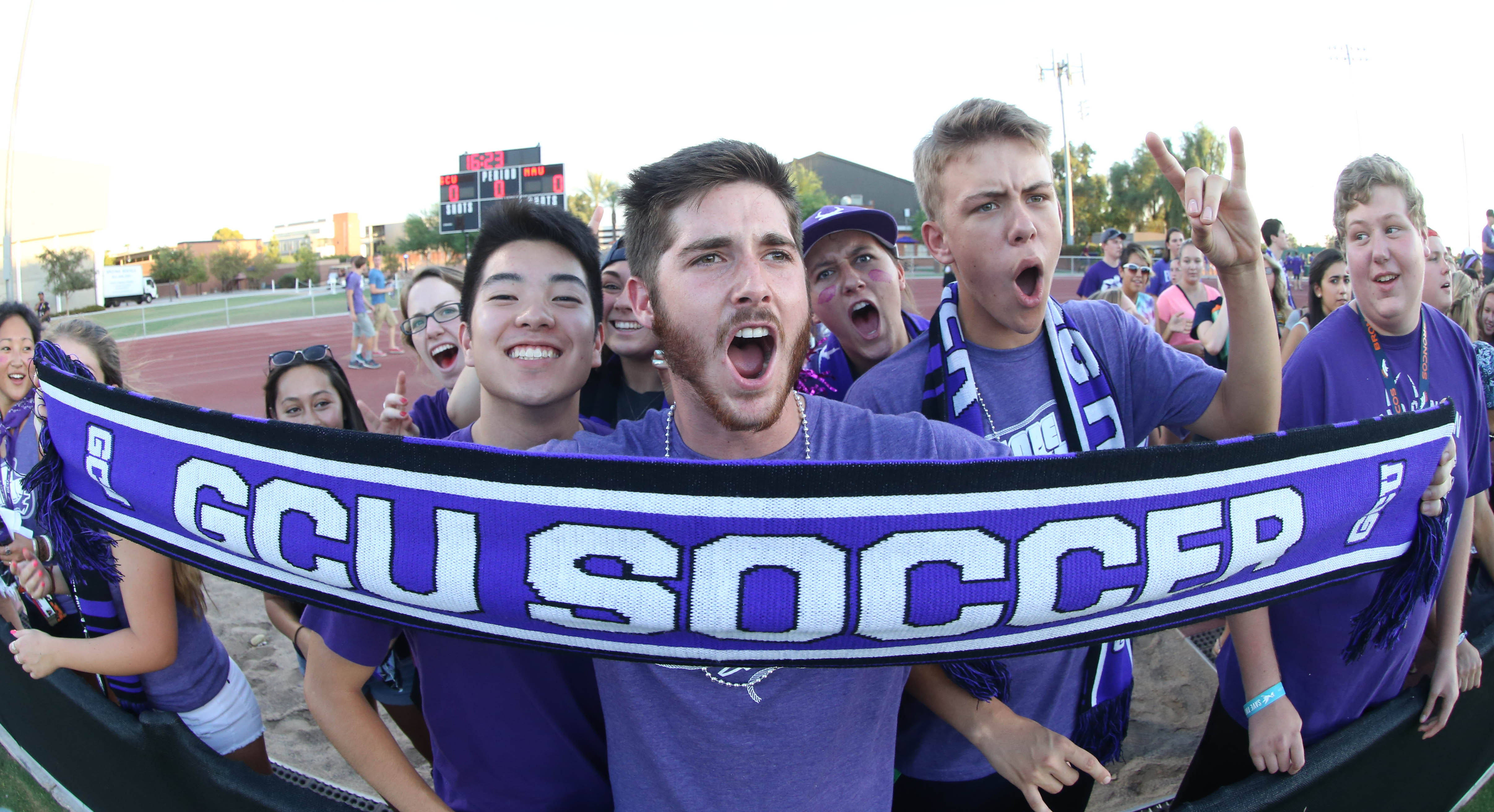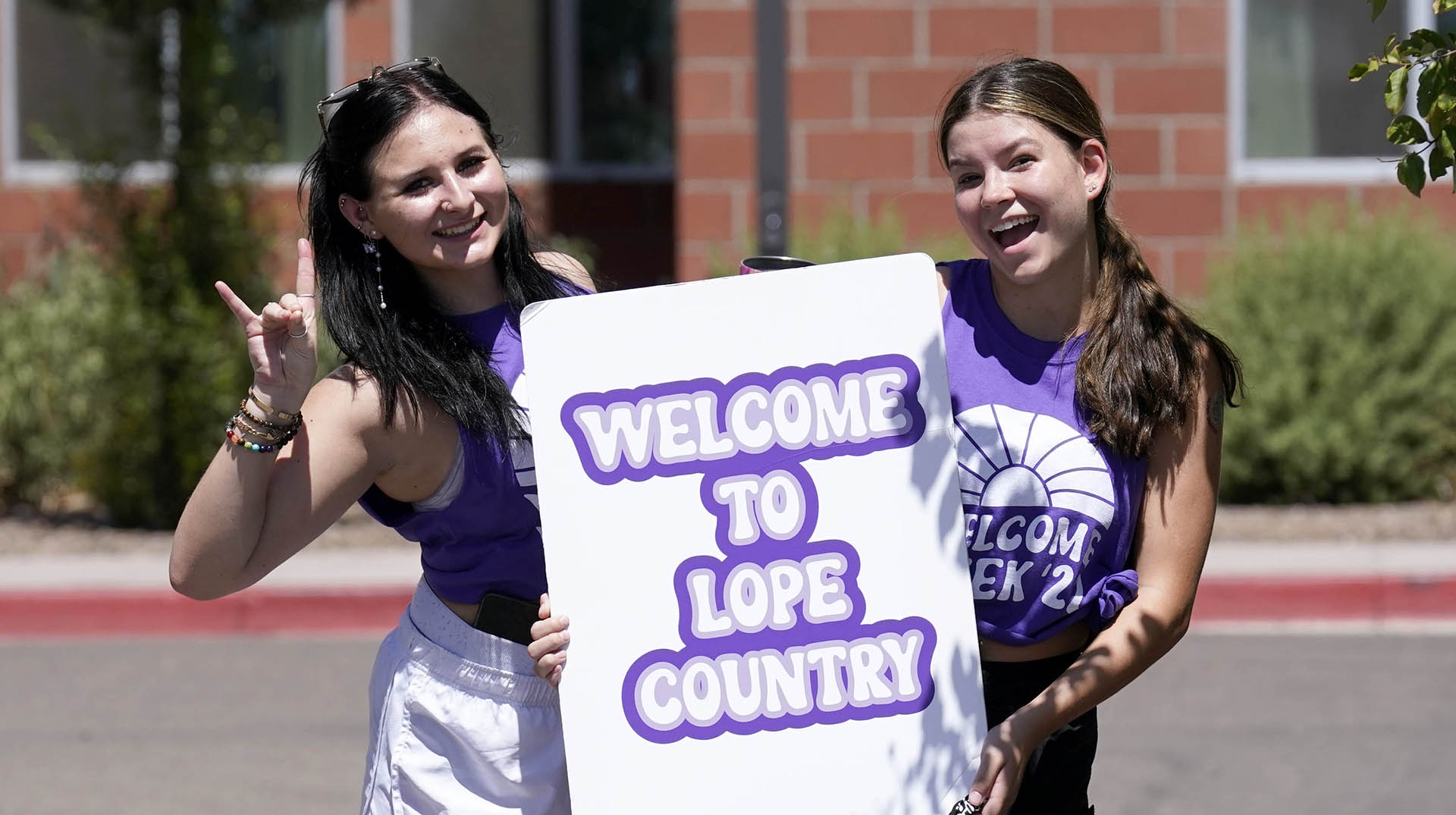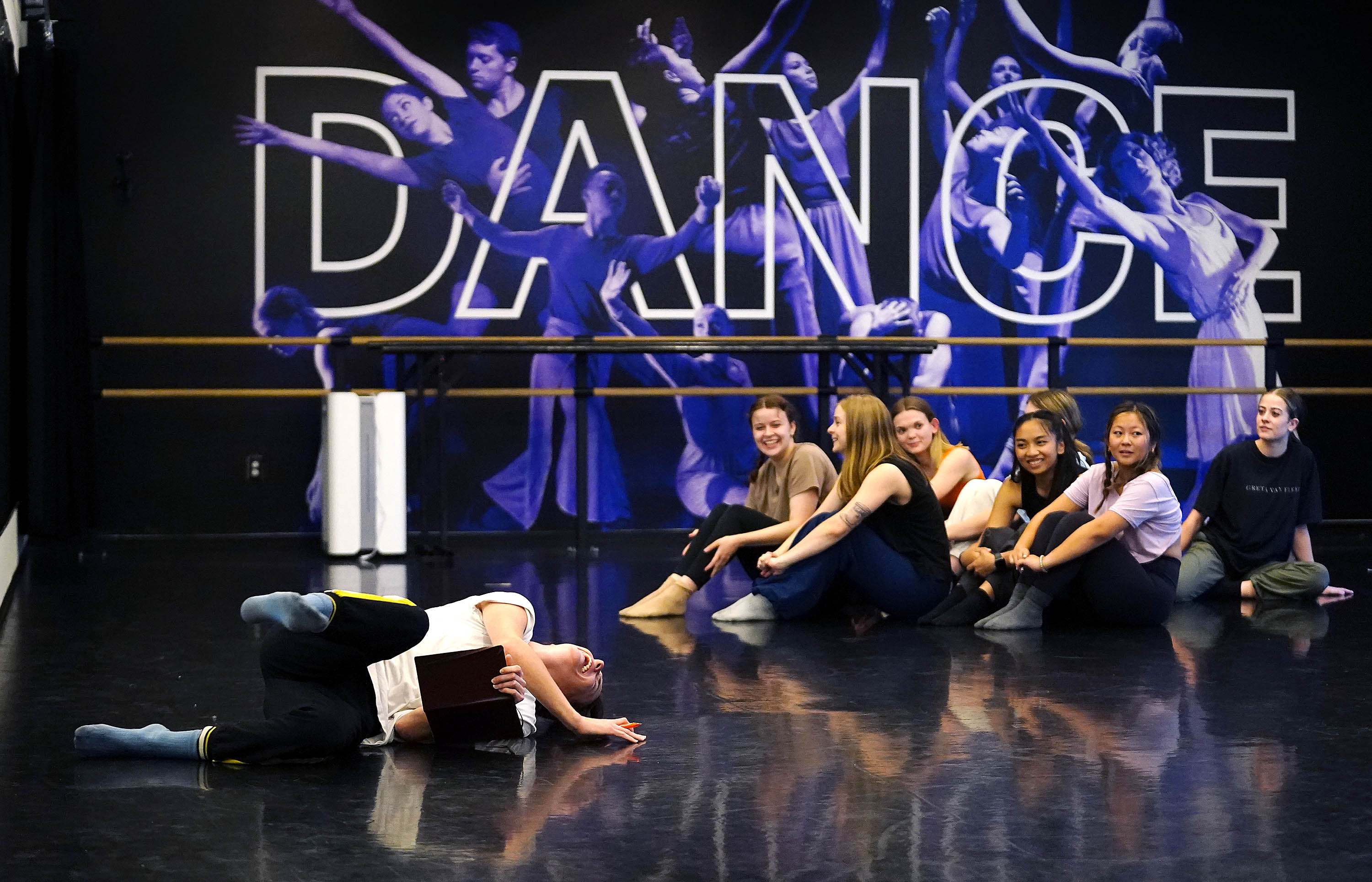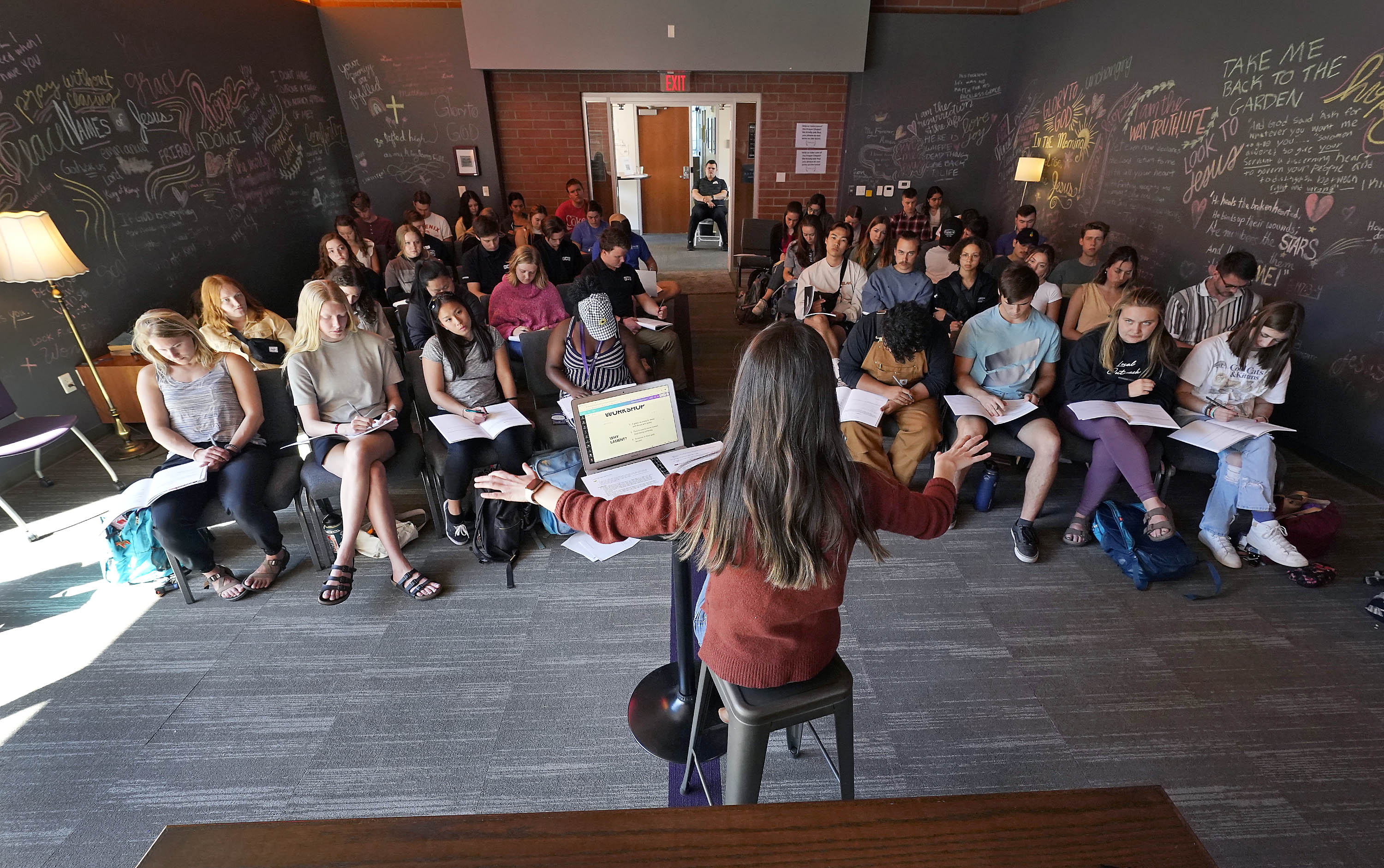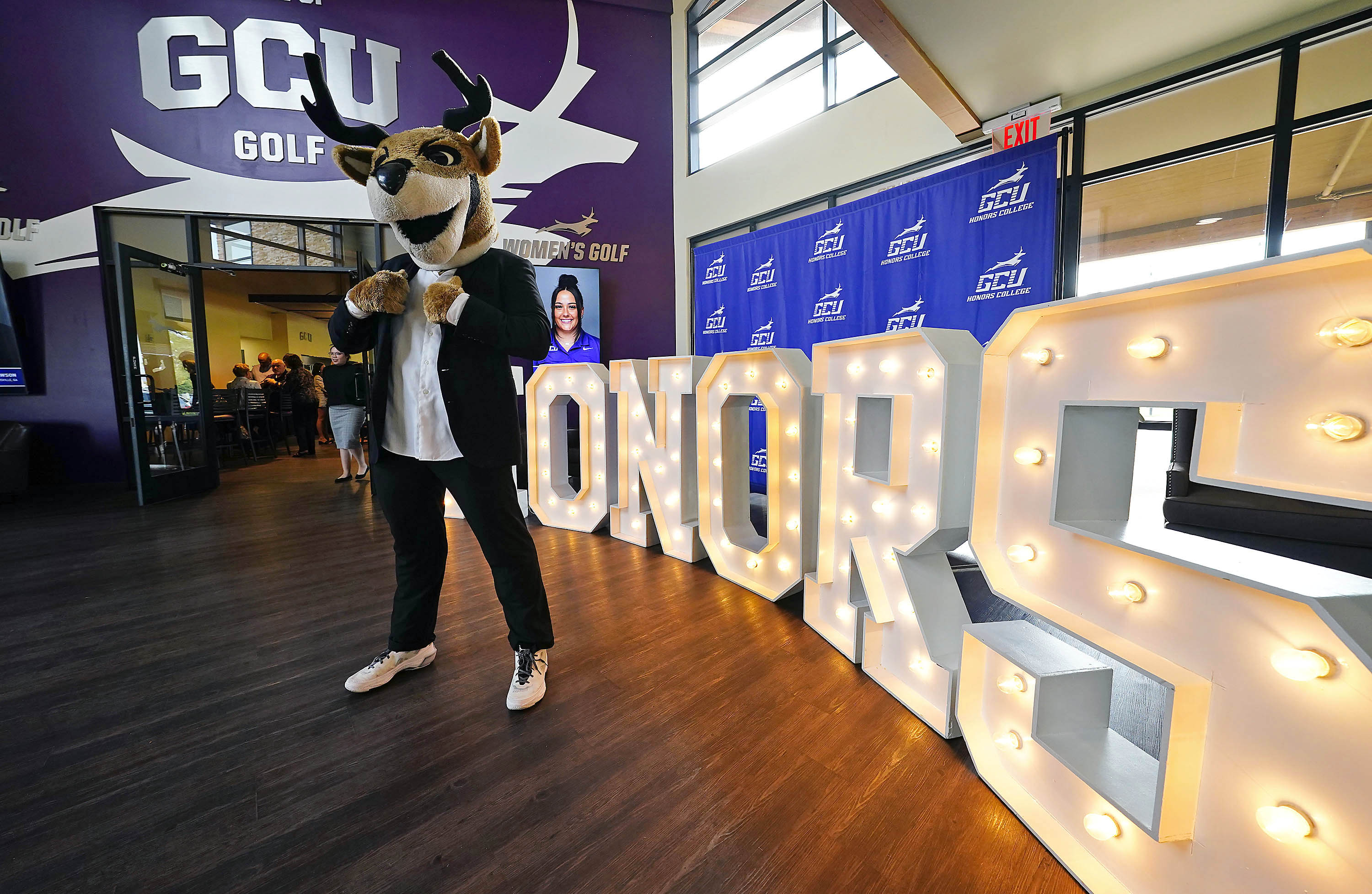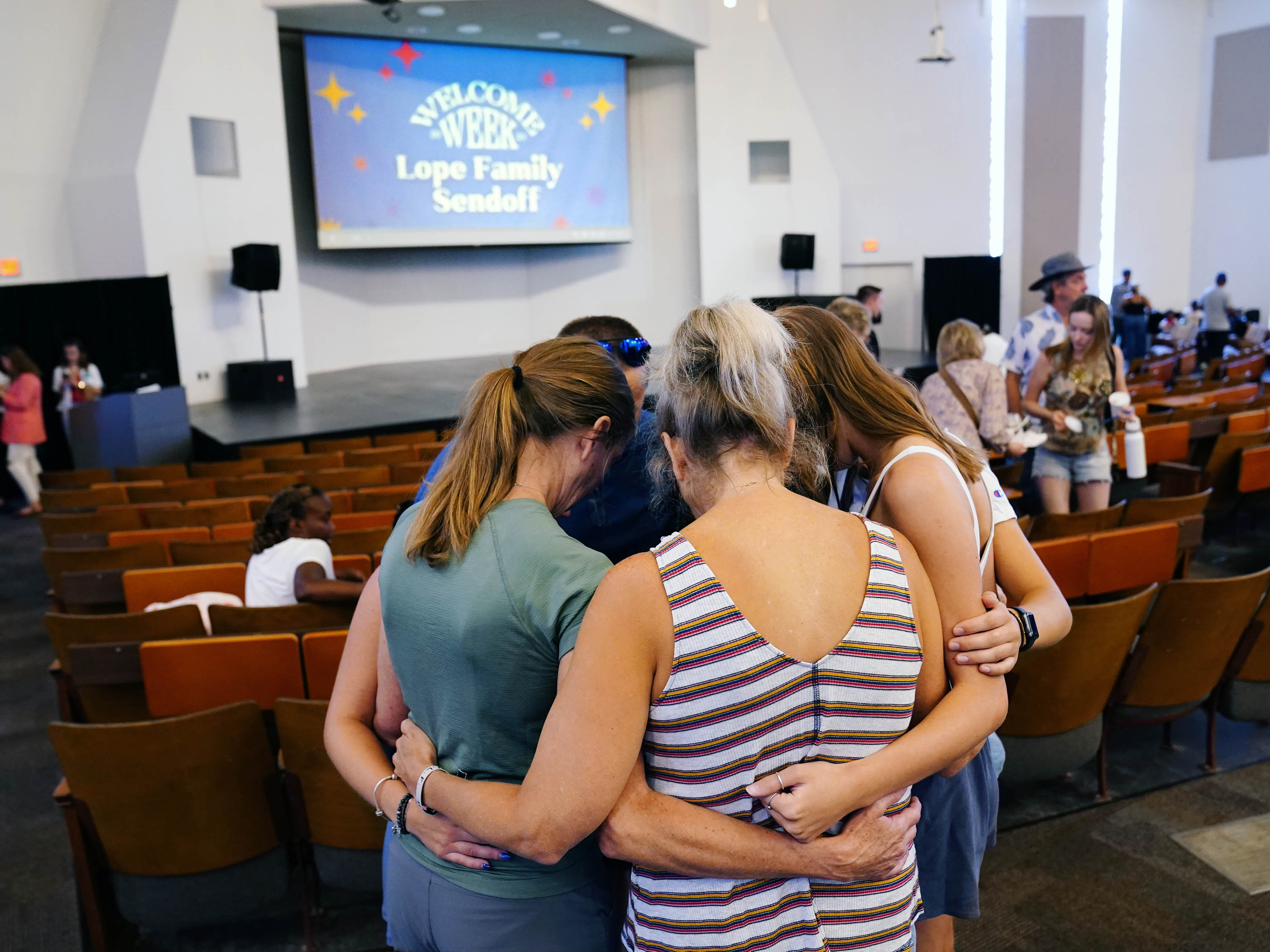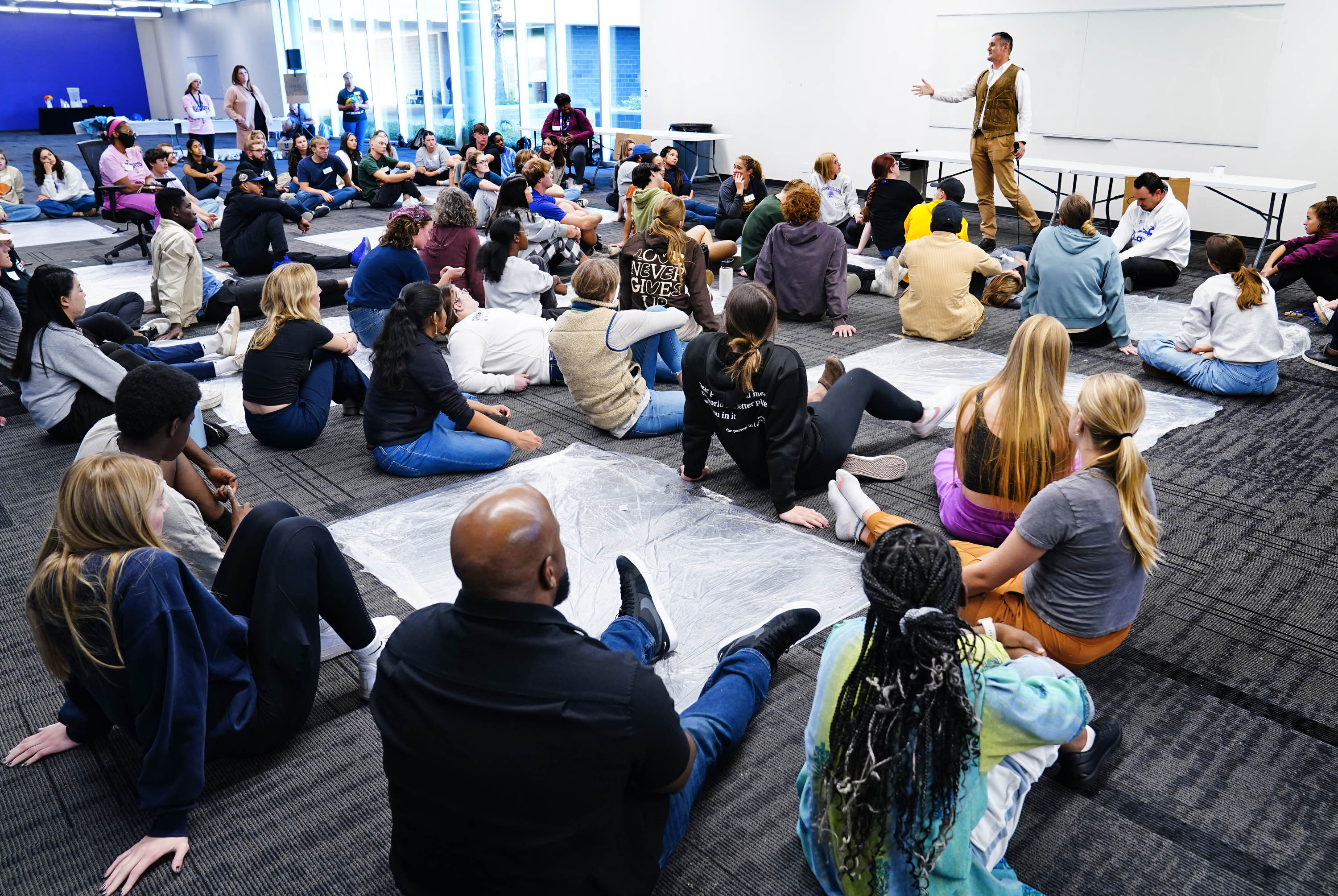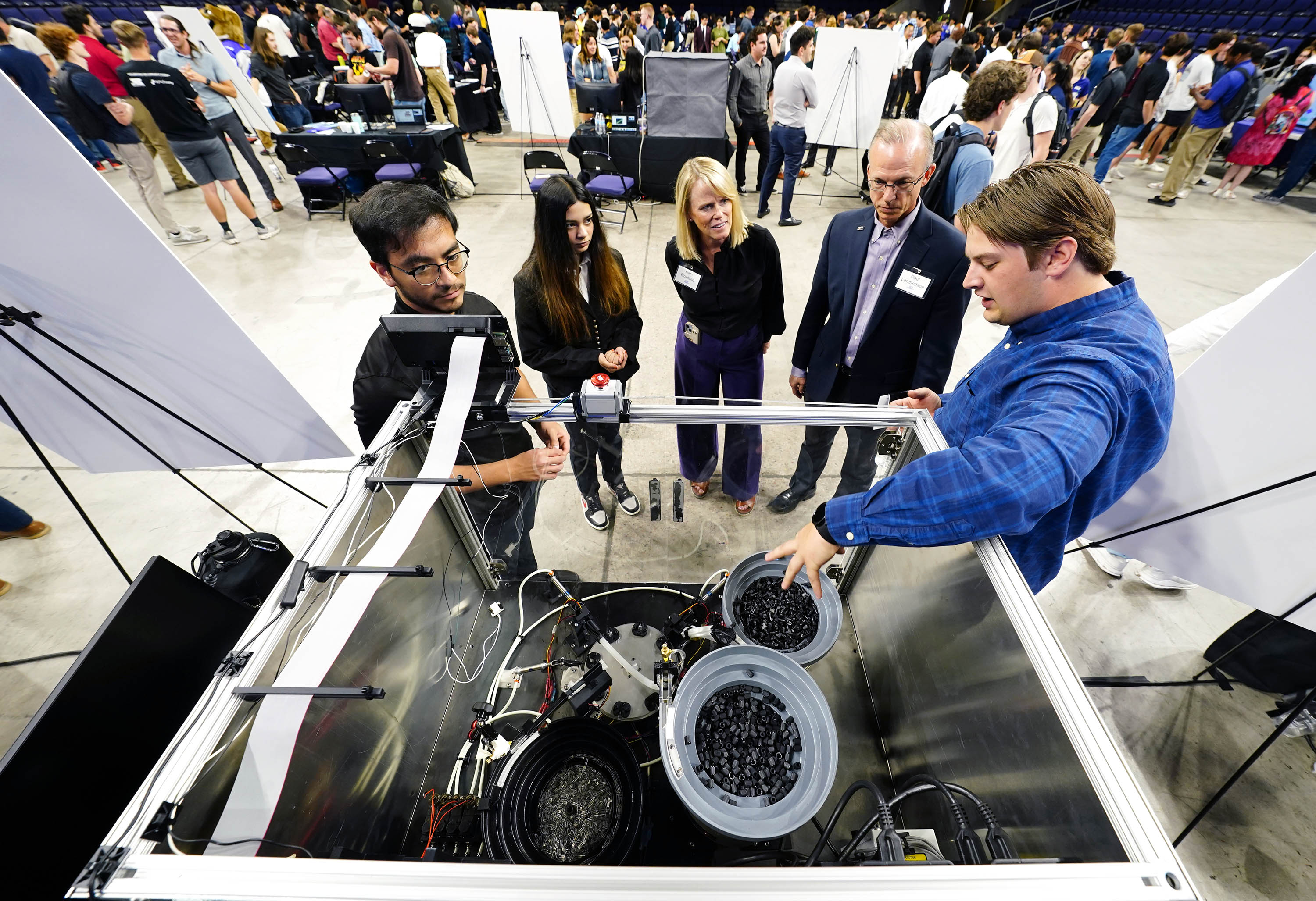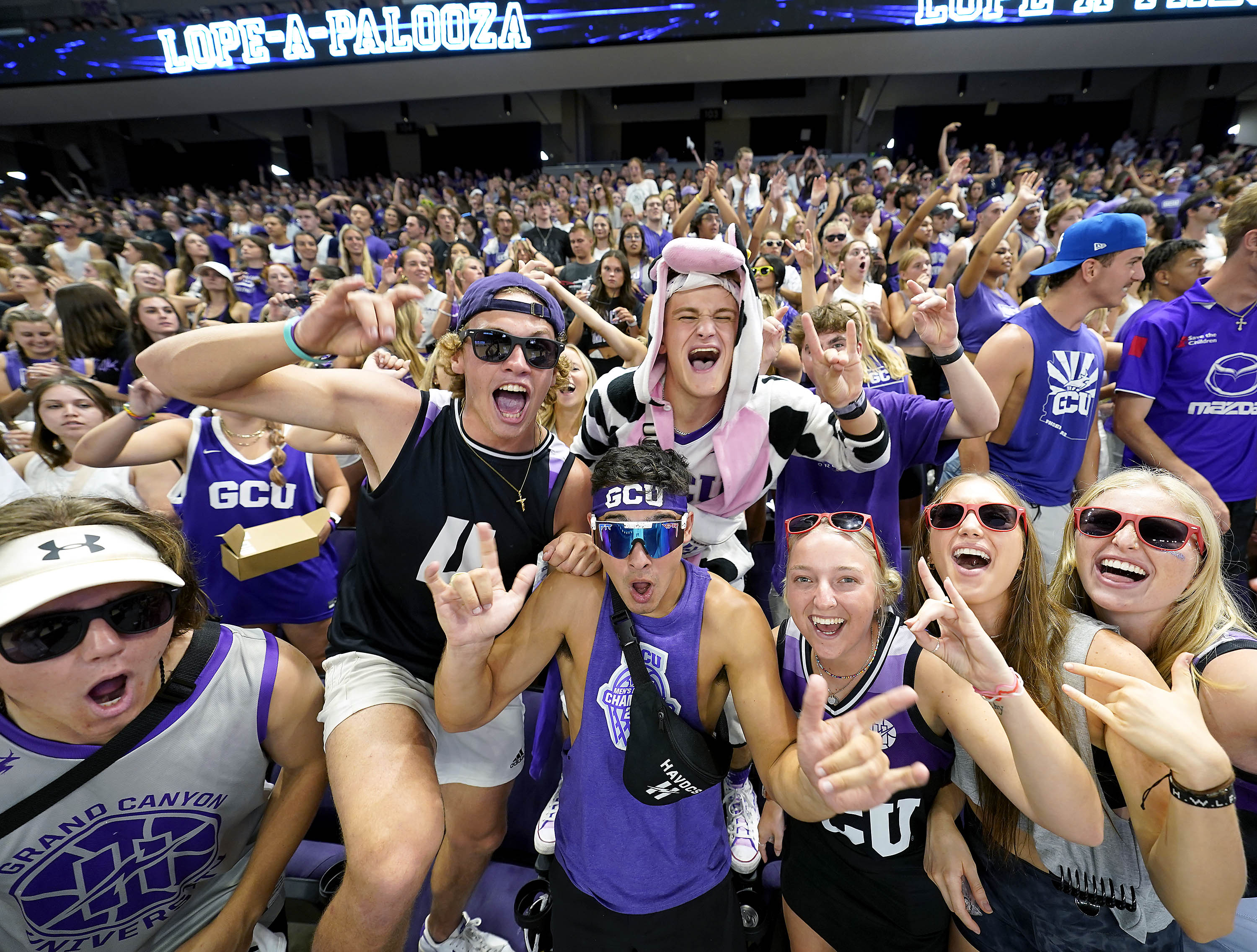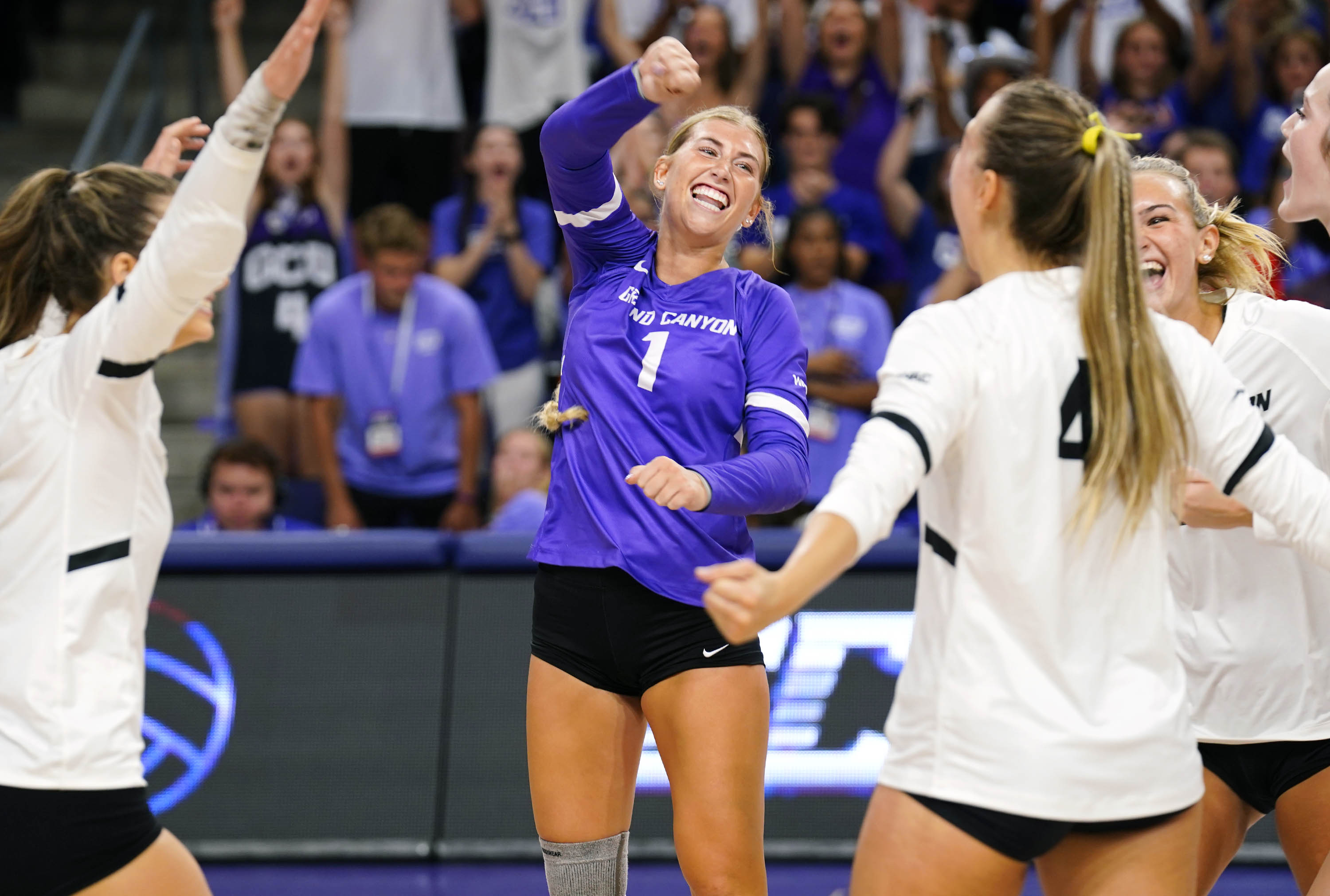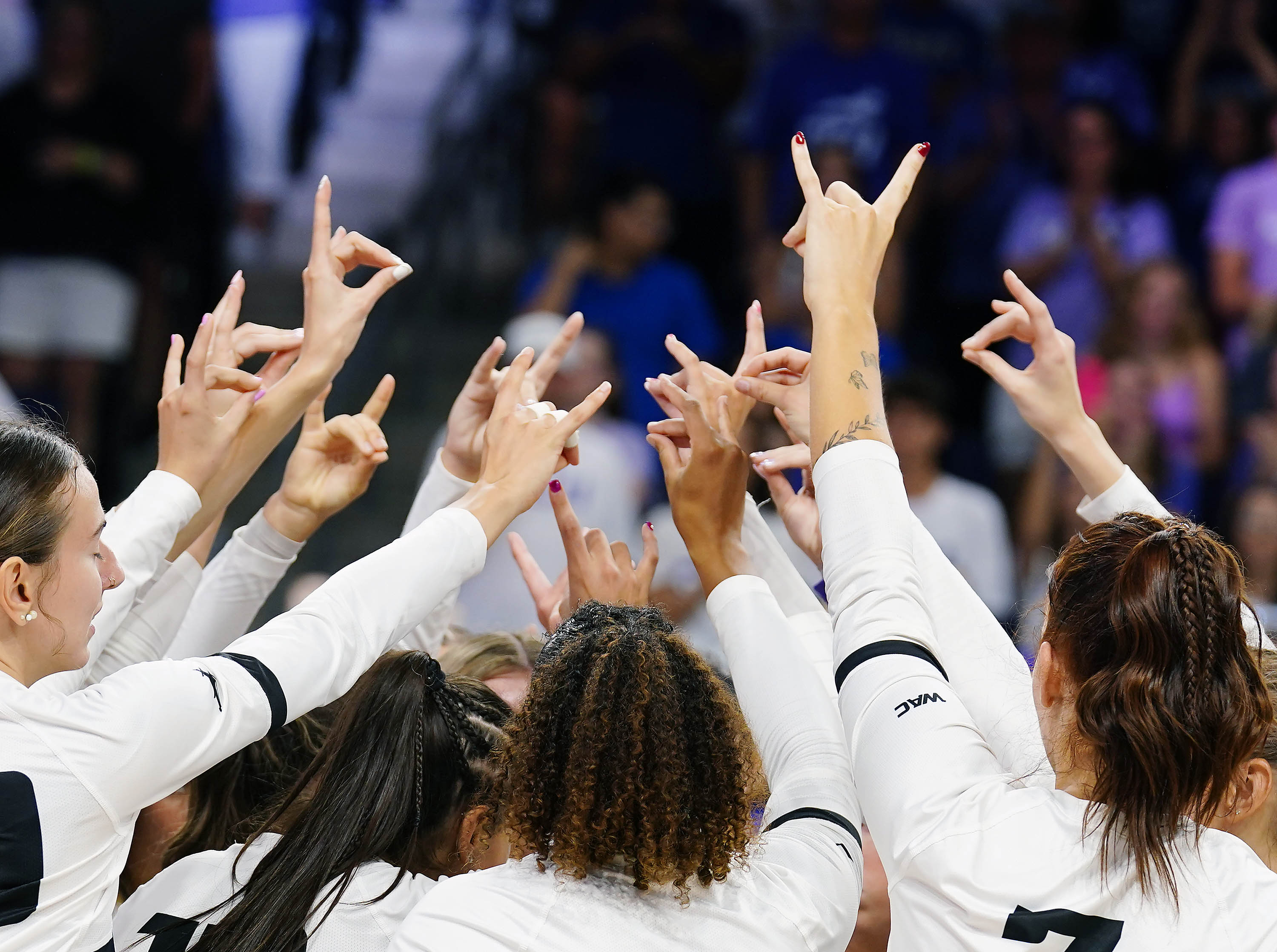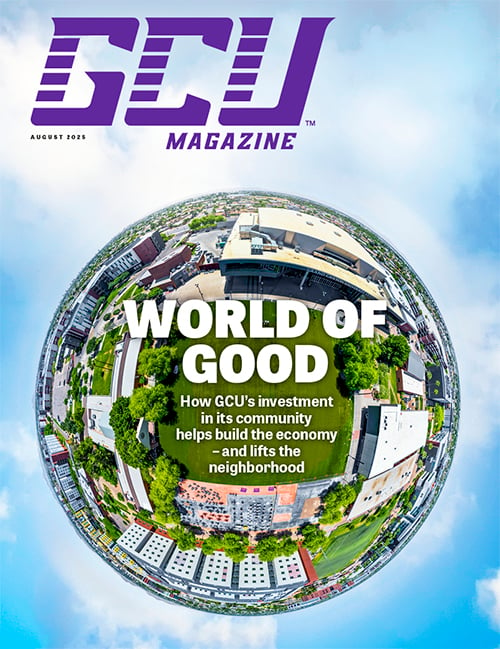Dear GCU faculty and staff,
I am writing to follow up with information that was shared during last week’s all-employee meeting. We are providing the information below to a reporter from the Phoenix New Times, and want to ensure that you have it as well if you are asked questions about the story by friends, family, students, church members or others with whom you come in contact. It is our expectation that any story will depict a fair, balanced, accurate and factual portrayal of the University. But given the reporter’s behavior and line of questioning to this point, we believe he may have a different agenda.
The reporter has reached out to a number of GCU students, employees and alumni, and is also looking into some issues that date back before the current management team came on board and began the remarkable transformation that all of you have helped shape. We now have nearly 10,000 full- and part-time employees who are building fulfilling careers at GCU, roughly 85,000 current students who are getting an affordable, high-quality education and more than 125,000 alumni who are leading productive careers. The overwhelming majority of these employees and students have had incredibly positive experiences that have changed their lives for the better.
As is the case with any large university, we understand that not all students will be happy with their experience. Obviously, higher education is not like a typical retail environment where “the customer is always right.” Some students will be unhappy for any number of reasons, some students will not pass, some students will not be able to handle the academic rigor, and some students will have life events that prevent them from completing their goals. We are nationally recognized for providing cutting-edge student support services and we do our best to ensure that every student has a great experience, but we understand that it will not turn out that way for everyone. Most importantly, we will not seek to remedy complaints by issuing passing grades or degrees in an attempt to satisfy student concerns if they have not completed the necessary academic requirements. The academic integrity of our institution is at stake and that will not be compromised under any circumstances.
Similarly, like any major employer, we understand that not every employee will be satisfied with their employment experience. Considering these large numbers, however, if you were to find even 1,000 students, alumni, faculty or staff who were unhappy with their experience at GCU, it would represent less than 1% of the total students, alumni, faculty and staff at this University. Thus, it is unprofessional and disingenuous for a reporter to actively seek out disgruntled students, alumni, faculty and staff in an effort to portray their anecdotal experiences as a reflection of the entire University when the overwhelming evidence of actual facts paint the opposite picture. We obviously take great pride in Grand Canyon University and the dedicated faculty, staff, students and alumni whom we have documented herein overwhelmingly have positive experiences.
We have been advised by many in the community not to engage with the New Times. Every question the reporter has asked via email comes at the University from a negative and accusatory standpoint. Not one question asks how the University has accomplished this amazing transformation in just nine years. In lieu of a personal interview with this reporter, which we do not believe would be depicted fairly or accurately, we are providing him with the detailed written document below, which provides factual information about the University. Rest assured that we will not allow the reputation of this University and the tremendous accomplishments of our students, alumni, faculty and staff to be unjustly damaged.
GCU HISTORY AND GOVERNANCE
GCU was a non-profit, Christian university from 1949 to 2004, at which time it was $20 million in debt and about to close its doors. As a private university, GCU did not have access to state tax subsidies like state universities and did not have a large endowment with which to operate. Rather than declare bankruptcy, GCU took on investors to keep the University afloat. Between 2004-2008, those investors helped stabilize the University financially but the administration that oversaw the university’s operations during that period had less experience in higher education than the current management team. Concerns raised in the Harkin Report (which was not approved by the Senate committee or issued as a formal report, and was disputed by GCU in writing) and from settlements with the federal government were related to university operations during that time.
In November of 2008, the current management team was brought on board to take over operations of GCU and reinvent the University as a publicly traded company still rooted in its Christian principles and mission. An initial infusion of $254 million from the public markets gave GCU the assets to create the technology infrastructure for our online campus and begin to build out our traditional campus into what it is today. GCU’s financial model is now stable and there is no need to go back to the public markets for additional capital. As such, GCU has considered options to revert back to our historical non-profit status if we determine that is in the best interest of our students, faculty, staff, alumni and stakeholders.
GCU ACCREDITATION & REGULATORY COMPLIANCE
During the last 18 months, GCU hosted site visits from five major accrediting bodies, which assessed everything from the institution’s academic offerings, governance and administration to its mission, student records, finances and resources. GCU met these comprehensive reviews with 100 percent compliance, which is a testament to the extraordinary effort that our faculty and staff put into building excellence into everything we do from an academic and operational standpoint. It should be emphasized that these results have been achieved after only nine years of very hard work since the current management team took over.
GCU is subject to extensive regulation by state education agencies, accrediting commissions, and the federal government through the Department of Education under the Higher Education Act. Below are details of just some of GCU’s significant accreditation and regulatory accomplishments.
Regional Accreditation
GCU is a comprehensive regionally accredited university that offers over 220 graduate and undergraduate degree programs, emphases and certificates across nine colleges, both online and on ground at our 260-acre campus in Phoenix, Arizona. GCU is regionally accredited through the Higher Learning Commission (HLC), which is the same regional accrediting body that accredits each of the three state universities in Arizona, as well as state and private universities in 18 other states across the country. Accreditation is a private, non-governmental process performed by industry experts to evaluate the quality of educational institutions and their programs in areas including student performance, governance, integrity, educational quality, faculty, physical resources, administrative capability and resources, and financial stability. The Higher Education Act requires accrediting commissions recognized by the Department of Education, such as HLC, to review and monitor many aspects of an institution’s operations and to take appropriate action if the institution fails to meet the accrediting commission’s standards. Accredited universities, like GCU, are subject to periodic review by HLC to ensure they continue to meet the performance, integrity and quality required for accreditation. GCU has been regionally accredited by HLC since 1968 and, following a comprehensive review last year by a peer review team of seven professionals with an abundance of higher education experience, GCU’s accreditation was reaffirmed on February 28, 2017 for an additional 10 years, which is the maximum extension of accreditation that HLC offers.
Specialized Accreditation
In addition to our institutional accreditation, we also have specialized accreditations for certain programs, including from the National Addiction Studies Accreditation Commission (NASAC), the Accreditation Council for Business Schools and Programs (ACBSP), the Commission on Collegiate Nursing Education (CCNE), and the Commission on Accreditation of Athletic Training Education (CAATE). In addition, Grand Canyon Theological Seminary is an Associate Member of the Association of Theological Schools in the United States and Canada (ATS). In fact, following a comprehensive review and assessment, the Colangelo College of Business at GCU was reaccredited by ACBSP on May 22, 2017 for the maximum 10 years. Similarly, following a comprehensive site visit, GCU was reaccredited by CCNE for the maximum 10-year period in 2016.
United States Department of Education
Our operations are also subject to extensive regulation by the Department of Education due to our participation in the federal student financial aid programs under Title IV of the Higher Education Act. Higher education institutions must apply periodically to the Department of Education for continued certification to participate in Title IV programs. Following a review by the Multi-Regional and Foreign Schools Participation Division (SPD) of the Department of Education, GCU was notified in August 2017 that it was granted continued certification to participate in the Title IV, HEA programs for an additional three years until December 31, 2020.
To show the significance of this continued participation, I want to highlight the accountability that an institution must demonstrate in order to earn this right. In addition to other requirements, including maintaining regional and state accreditation, in order to participate in these Title IV programs, GCU is required by the Department of Education to demonstrate that it has the requisite “administrative capability” to participate including, among other things, the following:
- Comply with all applicable Title IV program requirements;
- Have an adequate number of qualified personnel to administer the Title IV programs;
- Have acceptable standards for measuring the satisfactory academic progress of its students;
- Not have student loan cohort default rates above specified levels;
- Have various procedures in place for awarding, disbursing and safeguarding Title IV funds and for maintaining required records;
- Administer the Title IV programs with adequate checks and balances in its system of internal controls;
- Not be, and not have any principal or affiliate who is, debarred or suspended from federal contracting or engaging in activity that is cause for debarment or suspension;
- Provide financial aid counseling to its students;
- Refer to the Department of Education’s Office of Inspector General any credible information indicating that any student, parent, employee, third-party servicer or other agent of the institution has engaged in any fraud or other illegal conduct involving the Title IV programs;
- Submit all required reports and consolidated financial statements in a timely manner; and
- Not otherwise appear to lack administrative capability.
State Education Licensure and Regulation
GCU is authorized to offer educational programs by the Arizona State Board for Private Postsecondary Education (AZPPSE), the regulatory agency governing private postsecondary educational institutions in the State of Arizona. We are also currently licensed and authorized, either directly or through the State Authorization Reciprocity Agreement (“SARA”), to deliver academic programs to students in every other state in the country, as well as the District of Columbia. To maintain our state licenses and authorizations, we must continuously meet standards relating to, among other things, educational programs, facilities, instructional and administrative staff, marketing and recruitment, financial operations, addition of new locations and educational programs, and various operational and administrative procedures.
Periodic Compliance Reviews
GCU is subject to announced and unannounced compliance reviews and audits by various external agencies, including the Department of Education, its Office of Inspector General, the Department of Veterans Affairs, state licensing agencies, and accrediting commissions. In 2016, for example, Veterans Affairs completed its annual audit with no findings on any veteran student record.
NCAA Athletics
GCU most recently transitioned from a Division II member of the NCAA to a Division I member of the NCAA. As part of this transition, the University was required to undergo a four-year comprehensive review to demonstrate its capability to comply with the requirements of participation at the highest level of collegiate athletics. Following this four-year review, including a site visit from peer institutions, GCU was notified in August 2017 that it had received approval from the NCAA Board of Directors to participate as a full Division I member of the NCAA.
SEC Compliance
As a publicly traded institution on the Nasdaq National Market, the University is subject to extensive regulations from both the Securities and Exchange Commission and Nasdaq. These extensive regulations require, among other things, significant transparency and financial reporting obligations, including periodic filings on Form 8-K, quarterly financial and reporting obligations on Form 10-Q, and annual financial and reporting obligations on Form 10-K, along with its annual proxy statement.
Student Communication
GCU counselors receive extensive training for all state and federal regulations regarding communication with students and prospective students, and only contact prospective students who have first expressed an interest in attending the University. We are have no legal or regulatory issues with respect to these requirements. In fact, in both 2015 and 2016, GCU’s initial End of Course Surveys showed that 92% of students were satisfied with their University counselors.
An example of the 92% of students who expressed satisfaction with their counselor was this social media comment from on online student in Florida: “This is my second online college that I have attended. We are at the end of week 4 and so far I love everything about the class. The instructors and my counselors have been very supportive and very attentive to me. When I first enrolled I was nervous and thought I could not achieve this. Now I think with their dedication and my hard work I will graduate.”
We receive thousands of these unsolicited testimonials on an annual basis.
TECHNOLOGY AND TRANSPARENCY
LOPES Evaluation and Net Price Calculator
In addition to the significant regulatory oversight mentioned above, the University has designed and implemented significant transparency procedures for every potential new student who is interested in attending GCU. In particular, every potential new student at GCU undergoes a comprehensive LOPES Evaluation and Net Price Calculator before they begin their academic program. The LOPES Evaluation process provides students with a full understanding of any college credits that will transfer to the University and a schedule that outlines the time and required courses necessary to complete their desired program. The Net Price Calculator process provides students with a full and complete understanding of the costs they will need to incur in order to complete their desired program – not just for the first year as many universities provide, but for the entirety of their program. In addition, the Net Price Calculator is designed to encourage students to borrow the minimum amount necessary to complete their program by showing the differences in monthly loan payments and total interest payments that they will be obligated to pay depending on the total amount that they borrow. Federal student loan guidelines, in general, permit students, and in particular working adult students, to borrow more than the cost of attendance at the college of their choice in order to fund their individual living expense needs. Many students will borrow the maximum amount that they are entitled under the federal student loan guidelines without realizing the long-term implications of their choices. GCU’s Net Price Calculator is designed to provide students with a comprehensive understanding of their student loan borrowing options so that each student can make a fully informed decision.
During our accreditation visits, numerous experienced reviewers from peer institutions expressed that these transparency processes should be replicated throughout the country.
Borrower-based Model
In 2010, GCU switched from a term-based to a borrower-based financial aid model for its working adult students. Using a term-based method, working adult students found that aggregate loan limits could be reached prior to degree completion. The borrower-based model promotes responsible borrowing for students and allows students who must withdraw from a course to have less financial obligation than if they borrowed money for an entire term.
Refund Policy
To coincide with the switch to a borrower-based financial aid model, our refund policy was changed to introduce a course-by-course refund policy rather than term-based withdrawals that allowed students to receive only a portion of their refund if they withdrew during the first three weeks of a semester. Given that most working adult students only take one course at a time, they are only responsible to pay for individual courses that they take. This has fixed a problem that historically, at many universities, resulted in huge loan debt for courses the students never took.
Arbitration
Arbitration agreements have been commonly utilized as a cost-effective and efficient means of resolving disputes. Nonetheless, in light of recent criticisms against the utilization of this form of dispute resolution in higher education, like many universities across the country, GCU no longer includes an arbitration policy within its enrollment agreements.
ACADEMIC MODEL
GCU’s academic model, both online and on our traditional campus, features small class sizes (15 students per online class, 23 per face-to-face class) that emphasize interaction with classmates, collaboration on projects and critical thinking skills. There is also an emphasis on writing to ensure a more complete and thorough understanding of the subject matter. Particularly as it relates to online education, this is a differentiator for the University. GCU also recognizes that traditional 18-22-year-old students on our Phoenix campus learn differently than working adult students taking classes online, and tailors its instruction to meet the social maturity of those differing student bodies.
GCU has clearly stated goals for student learning at the course, program and University levels. All curriculum is created through a multi-stage design process led by faculty and supported by instructional staff and industry experts. Further, we have centralized the support functions of assessment for all of our programs through our Office of Assessment. While each of our colleges continuously evaluates the desired learning outcomes for each of their programs, the Office of Assessment provides data collection and analysis support. We continuously assess outcomes data to determine whether our students graduate with the knowledge, competencies and skills that are necessary to succeed in the workplace. The Office of Assessment also initiates and manages periodic examinations of the mission-based competencies in our curricula by full-time and adjunct reviewers to evaluate and verify mission-based competency attainment. Based on these processes and student feedback from both programmatic and mission-based assessment, we determine whether to modify or discontinue programs that do not meet our standards or market needs, or to create new programs. When we present this complex process at national higher education conferences and meetings, we receive very positive feedback.
As higher education becomes more focused on evaluating learning outcomes vs. what has historically been only input data, our process has drawn the interest of traditional universities all over the country. In fact, the University was one of only a handful of universities that participated in the comprehensive Higher Learning Commission Assessment Academy. Because of the implementation of our processes and procedures, we were able to successfully complete the Assessment Academy in just three years when the majority of institutions took a minimum of four years to complete it. Both our mentor assessment expert and the senior scholar assigned to GCU remarked that because of our thoroughness and collaborative nature, we are further along than most schools in this process.
Further, three representatives of GCU have been asked to serve on the Lumina Project with the HLC in an effort to cultivate industry-leading best practices, student success and innovation in the accreditation process.
ENROLLMENT AND STUDENT SERVICE COUNSELORS
During a White House education summit in 2014 that GCU President Brian Mueller attended, President Obama pointed out the glaring need for better counseling services for students across the country. This is an area to which GCU devotes substantial resources and has achieved very positive outcomes. Rather than have students wait in line at a call center for the next available counselor, GCU students are assigned a team of admissions and student service counselors throughout their academic journey – from the transparent application process during enrollment to academic and financial counseling as they progress through their programs of study. As a result, we have seen unprecedented success in all support services related to student satisfaction, which is evident in our improved retention rates and lower cohort default rates (which are detailed below) and our End of Course Survey scores.
In both 2015 and 2016, initial End of Course Surveys showed 92% of students were satisfied with their University counselors.
ONLINE CAMPUS
GCU, which now has more than 65,000 working adult students, differentiates its online curriculum in several ways.
Student body demographics
It is critical to point out that the University attracts a much different student body than other institutions in the for-profit sector, and in the not-for-profit sector for those institutions that have large online student bodies.
Of GCU’s online student body, more than 50% are studying at the graduate level. Of our undergraduate students, 53% transfer in more than 24 college credits. Research shows that graduate students and experienced undergraduate students graduate at higher levels and have lower default rates on student loans.
As a point of comparison in the for-profit sector, the most recent data shows that 82.4% of University of Phoenix students are studying at the associates or bachelors level. At Ashford and Strayer, the percentage of students studying at the associates/bachelors level is 86.5% and 72%, respectively.
These demographics are important because research has validated that the two most critical components to predicting a working adult student’s likelihood to be successful are the numbers of credits they transfer, and the grade-point average that they transfer in. In other words, the experience of the student is important to predicting the likelihood of success. We have built that into our strategy as we have built out our student body.
Online full-time faculty
In 2010, GCU built another high-quality component into its online education strategy by opting to go against the trend in higher education of using primarily adjunct instructors to teach online courses. GCU pioneered the usage of full-time faculty members to teach entry point online students because the University believed it could achieve superior learning outcomes for working adult students in the first-year experience. After assessing learning outcomes for online students with very little college experience, it was observed that full-time faculty could provide more support to these students with the hope that this additional support would improve their learning outcomes, completion rates and ultimately their graduation rates. These faculty members have office hours that fit the optimal time when students are online. They drive rich discussions about course content, provide real-time responses to students and ensure prompt feedback to student learning. They meet with their respective college deans and peer faculty regularly to discuss curriculum, grow professionally, and ensure alignment with GCU’s academic initiatives. These faculty members work collaboratively with each other to discuss best practices and share resources and communicate regularly with all graduation team members to support students fully. As overall student success and satisfaction rates continued to increase, the initiative was expanded to have online full-time faculty members teach the entire first year bachelor’s course sequence as well as for master’s and doctoral learners. This full-time faculty role experienced only a 5.9% turnover rate in 2016 and a 2.6% turnover rate thus far in 2017, which reflects how passionate and satisfied these online professors are with their careers.
GCU has written and published research on the use of full-time vs. adjunct faculty. For example: Mueller, B., Mandernach, B. J. & Sanderson, K. (2013). Adjunct versus full-time faculty: Comparison of student outcomes in the online classroom. Journal of Online Learning and Teaching, 9(3), 341-352.
Tutoring services
In addition to providing online full-time faculty, GCU offers free tutoring services from 8 a.m. to midnight for working adult students who are re-entering higher education. The program pairs high-achieving 18-22-year-old GCU student tutors with online learners in their 30s, 40s and beyond who need help re-acclimating to college academics or understanding technology such as internet library services. While these are experienced and successful students, many of them have been out of higher education for years and are for the first time experiencing higher education in an online learning environment.
This is in addition to our campus tutoring offerings, where we have nine academic excellence centers located in convenient locations for students. These academic excellence centers provide tutoring on three different levels and are open to students from 8 a.m. to midnight. It is important to note that we call them academic excellence centers because we don’t do remediation on our campus. Students are required to come college-ready, but we want them to succeed in very rigorous academic areas like natural sciences, engineering, computer science, information technology, etc. Student participation in these opportunities has been overwhelming. In 2015-16, there were 26,996 tutoring sessions attended by 4,928 students. In 2016-17, that jumped to 40,226 tutoring sessions attended by 9,301 students.
Doctoral programs
Achieving a doctoral degree is a rigorous process, and it is different for everyone. In fact, a 10-year study completed by the Council of Graduate Schools in 2007 found that – of those that complete a doctorate in Social Sciences -- only 56 percent of students are able to complete their program of study within 10 years. Nationally, the median time to completion for a doctoral degree for 2012 graduates was 7 years in Humanities and Social Sciences, and 6 years in all academic fields, according to the American Academy of Arts & Sciences. At GCU, doctoral graduates in 2014-2015 needed an average of approximately 4.5 years to complete their degree. We believe this is a reflection of the many support services we offer our doctoral learners. Among those services are:
- GCU’s curriculum is designed to get students thinking and working on dissertation scholarship early in the first year of their program.
- Curriculum is scaffolded with embedded research skills to support the formation of scholar-practitioners.
- Systematic feedback to achieve dissertation milestones and programmatic competencies.
- Doctoral committee consisting of a chair, methodologist, and content expert.
- University Counselor support for new doctoral leaners.
- Student Service Counselors trained in the dissertation process to assist students with resources and systems.
- Academic Quality Reviewers to provide feedback on research and scholarship.
- Research Specialists to field concerns from learners and committee members and provide support.
The Higher Learning Commission on March 2 approved two new GCU doctoral programs (Doctor of Philosophy in Counselor Education and Supervision and Doctor of Education in Teaching and Learning), indicating that peers who offer doctoral programs believe we can support further programs at this level.
Doctoral programs across the country face challenges because of the academic rigor involved and the difficulty of the dissertation process. GCU works individually with each of its doctoral candidates to ensure their success, but cannot and will not lower its academic standards during that process.
Statistics from our End of Course Surveys reflect a community of doctoral students who are incredibly satisfied with their experience:
- Of the more than 1,200 surveys we received from learners finishing a dissertation class in 2017:
- Approximately 87% agree or strongly agree that “My Dissertation Chair provides clear, focused, and relevant written feedback that helps me to progress in my dissertation journey”
- Approximately 90% agree or strongly agree that “My Dissertation Chair understands the dissertation process and is able to effectively communicate it to me”
- Approximately 84% of our learners would recommend their Chair to other Learners.
- Of 2,316 End of Course Survey responses for dissertation courses in 2016, approximately 91% of our learners agree or strongly agree with the statements “My instructor was engaged in classroom discussion in a helpful and meaningful way” and “My instructor provided useful feedback.”
These statistics clearly demonstrate that the complaints of a very small minority of our students who have had difficulty completing this rigorous program cannot be used to paint a fair picture of the University in general, or the College of Doctoral Studies in particular.
Expertise in Online Learning
GCU is recognized as a leader in developing and implementing high-quality strategies to successfully teach in an online platform. Since 2012, GCU faculty have delivered 1,254 scholarly and professional presentations in addition to authoring or co-authoring 1,158 scholarly publications featuring best practices in traditional, blended and online pedagogy, disciplinary expertise and theological perspectives (See the full lists here and here).
TRADITIONAL AND ONLINE CAMPUSES
Growth and Investment
GCU now has approximately 19,000 students on its Phoenix campus and more than 65,000 students studying online.
Since 2009, GCU has invested over $1 billion into educational infrastructure, including nearly $200 million in technology and sophisticated learning management systems for student learning, faculty training, faculty evaluation, assessment of learning outcomes, an electronic library, transcript evaluation automation, student portals, and financial transparency tools – all to support working adult students who attend our online campus.
This is the major driver behind the growth of our online student body and has impacted them in a dramatic way as reflected in completion rates and end-of-course survey results. In addition, we have invested in new classrooms, laboratories, residence halls, parking, recreational facilities and student amenities for our traditional Phoenix campus, which has grown from 110 acres to 260 in the past nine years.
Significantly, the University has accomplished all of this with only nominal increases in tuition for its online programs and no tuition increases on its traditional campus for nine years.
Several universities have inquired about partnering with GCU to take advantage of our advancements in online technology and learning outcomes. Further, many traditional private and state universities are adopting the hybrid campus model and teaching both traditional students on their campus and non-traditional students online. Many of these universities are using for-profit, publicly traded service providers such as Pearson and 2U to replicate what Grand Canyon University has first implemented. In fact, Purdue University is now in the process of purchasing Kaplan University (a for-profit, publicly traded university) to accelerate their adoption of the model.
What this movement has indicated is the realization that there are two major markets within higher education. Universities that leverage a common infrastructure in meeting the needs of both groups of students have experienced huge efficiencies. As the cost of higher education has continued to rise, placing extreme pressure on state tax subsidies, endowment funds and families, this model is a breakthrough in addressing these trends. Online students are benefitting, traditional campus students are benefitting and families are incurring less debt at GCU (an average of $18,750) than the average at public universities ($25,550) and far below the average at nonprofit private universities ($32,300) or for-profit colleges ($39,950), according to data from the Institute for College Access and Success.
Incoming GPA
GCU believes that the greatest determining factor for student success for traditional aged students is incoming grade point average as it incorporates an element of effort in addition to academic aptitude. The University’s admission requirement for new students was raised to a 3.0 GPA after the new management team took over.
For the Fall 2017 academic year, the GPA of our incoming class is greater than 3.5. The average weighted incoming GPA is 4.1 for new members of our Honors College, which has grown to approximately 1,600 total students.
The University also requires a minimum GPA of 3.0 for admission for working adult students. However, the University also has a process to allow working adult students to be “accepted with specifications” if their high school or college GPA was less than 3.0. This process allows them the opportunity to demonstrate that they can handle the academic rigor of the University, but if they are not successful in the first two courses they are not allowed to continue. We do this because a 35-year-old working adult student is often a very different person than they were when they were 18, but we also do not want them to accumulate significant debt if they cannot be successful. This is one of the reasons why the average debt level of GCU students falls below the average debt level of state universities and significantly below that of other private universities.
Retention and Graduation Rates
Retention rates and graduation rates in higher education reflect the mission of the institution and the type of students it serves. Community colleges will not have graduation rates as high as state universities. State universities won’t be the same as private Ivy League schools. Our retention and graduation rates reflect the broad spectrum of students that we teach. Graduation rates for our master’s students range from 60%-80% depending on the academic program, while undergrad rates range from 30%-80%. For example, one of our largest programs, the RN to BSN, is close to 80%.
GCU graduation rates for doctoral programs fall in the mid- to high-30% range depending on the program, which is in line with the national average of 37% according to the National Research Council.
Given that over 75% of our student body are studying in doctoral or masters programs or have significant prior experience in bachelors programs, the University’s working adult graduation rates are much higher than other for-profit universities and in line or better than most traditional state universities.
It is important to point out that graduation data that is reported to IPEDs not only dates back six years, before the University’s transformation under the current management team was fully implemented, but also that it reflects only first-time, full-time cohorts, which is an extremely small percentage of our entire student body.
College Learning Assessment
While some popular college rankings evaluate universities based upon mainly input data, the College Learning Assessment examines actual performance-based, outcomes-based data from a national test that nearly 200 universities participate in. CLA measures how students perform both as freshmen and as seniors (and how much they learn or improve in between) in key areas of critical thinking, analytical reasoning and effective communication. GCU seniors scored equal to or better than 86% of CLA schools when measuring the amount that students learned between their freshman and senior years. Further, GCU scored in the 78% percentile among those schools when examining just the senior score. CLA is nationally recognized by educators, accreditors and the federal government. Rather than measure “inputs” that have little bearing on academic success, as some rankings do, CLA measures tangible outputs of students.
STUDENT LOAN DEFAULT RATES
This is another differentiator for GCU and is a key indicator of the growing strength of the University’s student body and the growing success levels of its graduates. Under the Higher Education Act, an educational institution may lose its eligibility to participate in some or all of the Title IV programs if defaults by its students on the repayment of their federal student loans exceed certain levels. For each federal fiscal year, the Department of Education calculates a rate of student defaults for each institution (known as a “cohort default rate”). This rate is calculated by determining the rate at which borrowers who became subject to their repayment obligation in one federal fiscal year default in that same year or by the end of the second year following the first federal fiscal year (known as the “three-year method”). Essentially, an institution can lose its eligibility to participate in Title IV programs if its three-year cohort default rates exceed 30% for each of its three most recent federal fiscal years.
GCU’s three-year cohort default rates for the 2010, 2011, 2012 and 2013 federal fiscal years, the latest years for which such rates are available, were 19.5%, 15.7%, 10.3% and 9.2%, respectively. Cohort default rates for the 2014 and 2015 federal fiscal years have not yet been released, but we estimate that these cohorts will decline to 8.7% and 6.5% respectively. The high cohort default rates in 2010 and 2011 relate to students who graduated or dropped from the university in 2007 through 2009 when the University was under different management.
By way of comparison, below are three-year cohort default rates for Arizona’s three state universities and several prominent for-profit universities:
| 3 YEAR COHORT DEFAULT RATE | ||||
| 2013 | 2012 | 2011 | ||
| GCU | 9.2 | 10.3 | 15.7 | |
| U of Phoenix | 13.3 | 13.5 | 19 | |
| Strayer | 11.3 | 11.6 | 14.9 | |
| Ashford | 14.5 | 15.3 | 15.3 | |
| ASU | 6.9 | 7.3 | 8.5 | |
| UofA | 5.6 | 6 | 7 | |
| NAU | 6.7 | 7.3 | 10.2 |
ASSESSMENT AND STUDENT SATISFACTION
Student feedback
A critical factor in determining the overall quality of any university is the opinion of its students. Are they satisfied with the education they are receiving? Do they feel like they are a valuable member of a community on campus? Does their degree prepare them for the career of their choosing? For GCU students, the answer to each of these questions is a resounding yes. In fact, student satisfaction rates across all programs trend around 90% at GCU.
GCU has hard data backing this statement in the form of the National Survey of Student Engagement (NSSE) completed by our students, which reveal the following:
- Of the 5,760 surveys completed by GCU students in 2015, approximately 92% rate their overall experience as “excellent” or “good,” while roughly 89% would “definitely” or “probably” attend GCU again.
- Of the 5,978 surveys completed by GCU students in 2016, approximately 91% rate their overall experience as “excellent” or “good,” while roughly 89% would “definitely” or “probably” attend GCU again.
Another way to gauge student satisfaction is via social media, which provides an abundance of unfiltered student feedback. For instance, on our Facebook page GCU enjoys a rating of 4.4 out of 5 stars based upon 2,926 reviews. Of those, nearly 2,500 rated the University with 4 or 5 stars, while 342 rated it with 1 or 2 stars.
Speaking of Facebook, something remarkable has been unfolding over the past few weeks. On July 26, 2017, a sham group calling itself “Graduate Rights Watch” made a post claiming that it was “collecting signatures to initiate a lawsuit” against GCU. What this group is really doing is attempting to fleece students out of cash in exchange for student loan consolidation assistance, a service that is provided by the federal government at no charge. GCU has initiated legal proceedings against this group in an effort to unmask their true identity and hold them accountable for their nefarious activities, but the fraud being perpetrated by these individuals is not the point that we want to make here. What is remarkable is the comments that follow the post: Nearly 400 different people have weighed in with an outpouring of positive support for GCU. These comments reflect a grassroots, social media uprising in defense of the University and provides further evidence of the overwhelming satisfaction among GCU students.
CHRISTIAN MISSION
GCU is an interdenominational Christian university with a Doctrinal Statement that outlines our commitment to the full inspiration of Scripture and brings our mission and identity into clear focus. It looks at the world from a Christian worldview perspective both in terms of classroom teaching and other activities on campus. About 65% of students come to GCU from a Christian worldview perspective. Others who come from a different perspective or no faith perspective are welcome on our campus and welcome to share their worldview in our classrooms.
There is a vibrant spiritual life component to our campus in which 6,000-7,000 students voluntarily attend Chapel every Monday, 2,000 attend The Gathering every Tuesday, and countless others are involved in weekly Bible studies that are led by our student leaders.
But the most significant component of our faith is lived out actively in our inner-city neighborhood through our five-point plan and dozens of other activities where we work to improve the lives of people in our inner-city neighborhood (more details on those are spelled out below).
GCU considers four main constituents in every decision that it makes:
- Students: In an effort keep higher education affordable for families, the University has had only nominal tuition increases for online students in the past nine years, and has frozen tuition on its traditional Phoenix campus during that time frame. Further, the University has invested more in educational infrastructure than it has made in after-tax profits since becoming a publicly traded institution.
- Faculty and staff: We have now grown to almost 10,000 employees, and the average wage has consistently increased during the past nine years. Even though the cost to the university to provide employee benefits has increased significantly in recent years, we haven’t passed that expense on to our employees.
- Community: We are investing millions of dollars and thousands of volunteer hours into the inner-city neighborhood in which we reside. That is part of fulfilling our Christian mission. Some investors have based their decision to invest in the University partly upon our commitment to the public good and the Christian mission of the institution, which is reflected both on our campus and in our commitment to the community.
- Stakeholders: If the success of the University continues to increase and our investors get a reasonable return as a result of putting their money at risk, we believe this is what America has always been about. There should be more of this, not less.
GCU CAMPUS LIFE AND COMMUNITY INVOLVEMENT
The University’s campus was recently named one of “The 10 Best College Campuses across America” – coming in at No. 8 on the list, just ahead of Stanford and Yale. The article was based on a recent study conducted by Niche.com, a company that specializes in analyzing data on educational institutions. Niche is one of four rankings often cited – along with U.S. News, Forbes and The Princeton Review. As mentioned in the article, the results of the rankings are based on data from the U.S. Department of Education, college statistics, and student reviews on the classrooms, labs, performance venues, housing, food, and recreational facilities of college campuses nationwide.
GCU’s campus has thrived in West Phoenix, an area largely left behind in terms of economic development over the past 50 years. GCU has emerged, however, as a beacon of hope in the area by making an unprecedented commitment to the surrounding community. One of the biggest impacts GCU is having in the local community is through jobs and economic development. According to a study by Elliott Pollack & Co., GCU is contributing more than $1.1 billion to the local economy each year. In addition, GCU has now created approximately 10,500 full, part-time and student worker positions. GCU will continue to hire many more over the years to come with an emphasis on hiring residents from the local community.
GCU is also creating tremendous economic impact and new job opportunities through various new business initiatives that it has launched in the local neighborhood. In January 2016, GCU unveiled the completely renovated Grand Canyon University Championship Golf Course, a public golf course owned by the City of Phoenix that GCU is now operating under a unique 30-year operating agreement and partnership with the City. GCU invested significant dollars into the renovation of the course which now serves as one of the premier golf destinations in the Southwest, located in the Maryvale community in West Phoenix. The employees at this course don’t just work for a golf course, they work for GCU, which entitles them, and their families, to free tuition benefits, offering them the opportunity to complete a college degree that many never thought was possible. Similarly, the University has invested in two new restaurants, a hotel, a beverage company, a promotions company, and an advertising company, all of which are located in the University’s West Phoenix community. Revenue from these initiatives is reinvested into the University and helps us continue to hold the line on tuition.
In addition to significant job creation, GCU also serves its surrounding neighborhoods through one of the country’s largest partnerships with Habitat for Humanity. To date, GCU’s faculty, staff and students have raised several million dollars and worked thousands of hours to repair, remodel or otherwise improve over 100 homes in the communities adjacent to campus, with a goal of 700 renovations in the next three years.
One of GCU’s most significant efforts in the community is the Learning Lounge which offers free one-on-one tutoring and mentoring services to students at K-12 schools in the local community. A resounding success story from the Learning Lounge effort is Alhambra High School, which was the original partner school for this program. Alhambra High School sits right across from GCU’s campus and struggled for years as a near failing high school. Armed with a dedicated commitment from Alhambra’s faculty and staff, and the added resources and support of GCU and its new Learning Lounge, Alhambra was able to earn the coveted Beat the Odds Gold Award from the Arizona Department of Education in 2016 by demonstrating improved AIMS scores over three years, in addition to other criteria. Today, the Learning Lounge is being utilized by 65 K-12 schools from the neighborhoods surrounding GCU’s campus. Since the Learning Lounge’s inception in 2013, there have been 19,363 visits by students with 47,864 hours of tutoring provided.
In a related effort, the Students Inspiring Students (“SIS”) scholarship program was born out of the efforts of the Learning Lounge. Under the terms of the SIS scholarship, high school students who receive academic assistance at GCU’s Learning Lounge, have a minimum GPA of 3.5, and are nominated by their peers, are eligible to receive a full tuition scholarship to attend GCU. As part of their full-tuition scholarship, students then pay it forward by putting in 100 hours a year of mentoring and academic support in the Learning Lounge while at the University to the next group of K-12 students behind them. To date, GCU has provided 200 full-tuition scholarships through the SIS program, with plans to build to 200 full-tuition scholarships awarded on an annual basis and a total of 800 total students attending GCU as part of this program each year.
The University also provides both financial support and thousands of volunteer hours at nonprofit agencies in our community such as the Phoenix Dream Center, St. Mary’s Food Bank, St. Vincent de Paul, Phoenix Rescue Mission, and Feed My Starving Children.
CONCLUSION
Hopefully this information provides a more thorough, factual and complete understanding of Grand Canyon University and its operations, and what sets it apart from others in the for-profit sector as well as many in the not-for-profit space. This is clearly evident in the high-quality student body, transparent enrollment process, student-friendly refund policies, support services with full-time online faculty and tutoring opportunities, low student debt, industry-leading curriculum development and assessment process, regulatory achievement, extensive counseling services, and strong assessment metrics such as loan default results and student surveys.
The University further distinguishes its innovative approach to higher education in that it has never paid a dividend to its shareholders; it has invested more into its campus infrastructure and technology – $1 billion over a nine-year period – than it has made in after-tax profits during that time; it has not raised tuition on its ground campus in nine years, which is unheard of in higher education; is the only university in the for-profit sector with a significant traditional campus environment; the only for-profit member of the Association of Theological Schools (currently we have associate member status); and the only for-profit institution participating in NCAA Division I athletics.
Sincerely,
Brian Mueller,
President, Grand Canyon University


